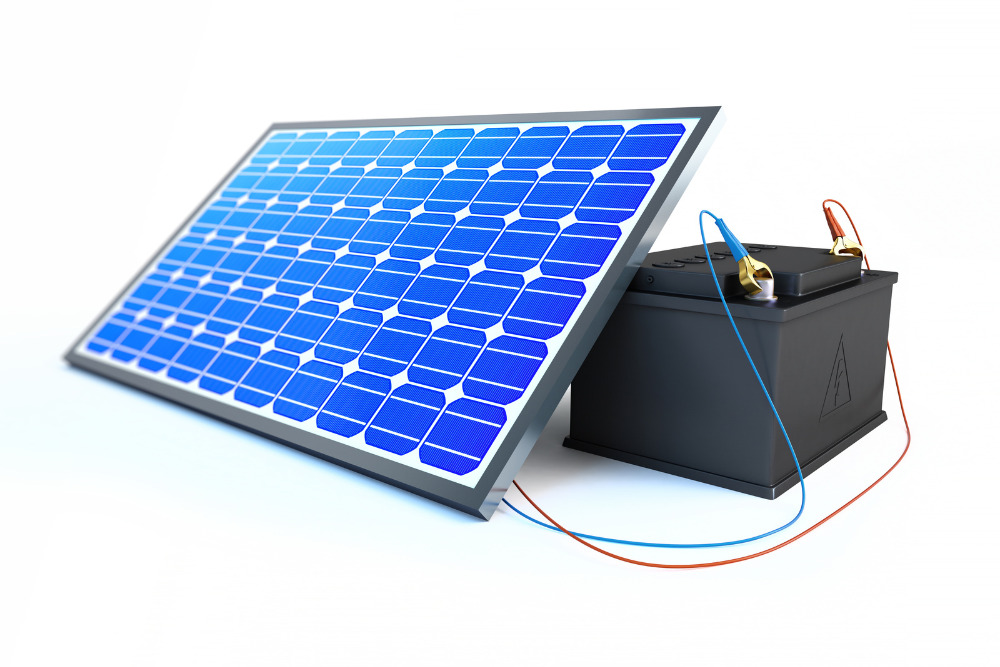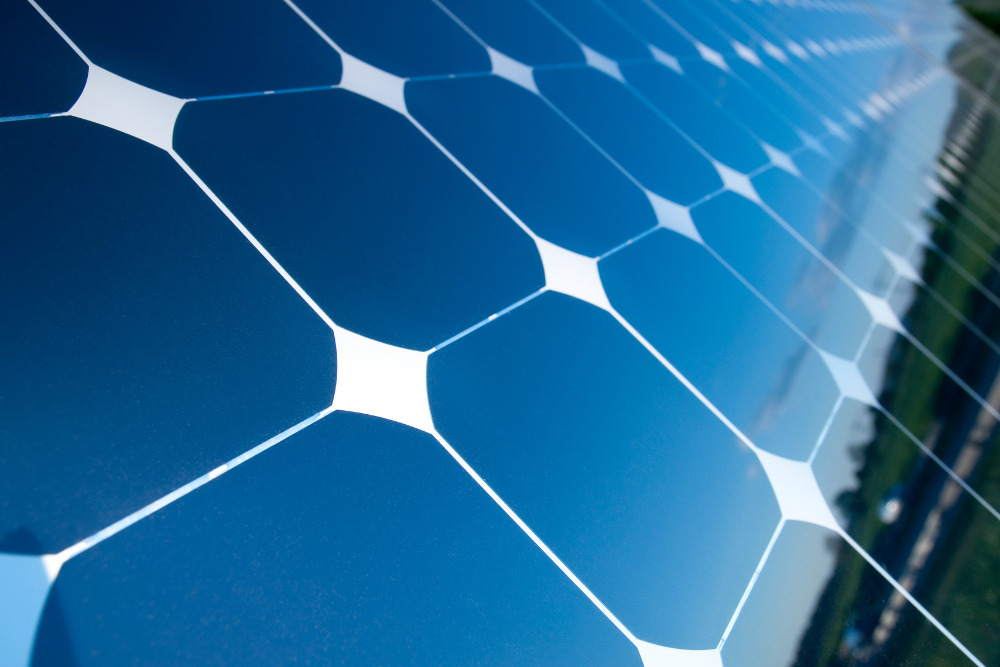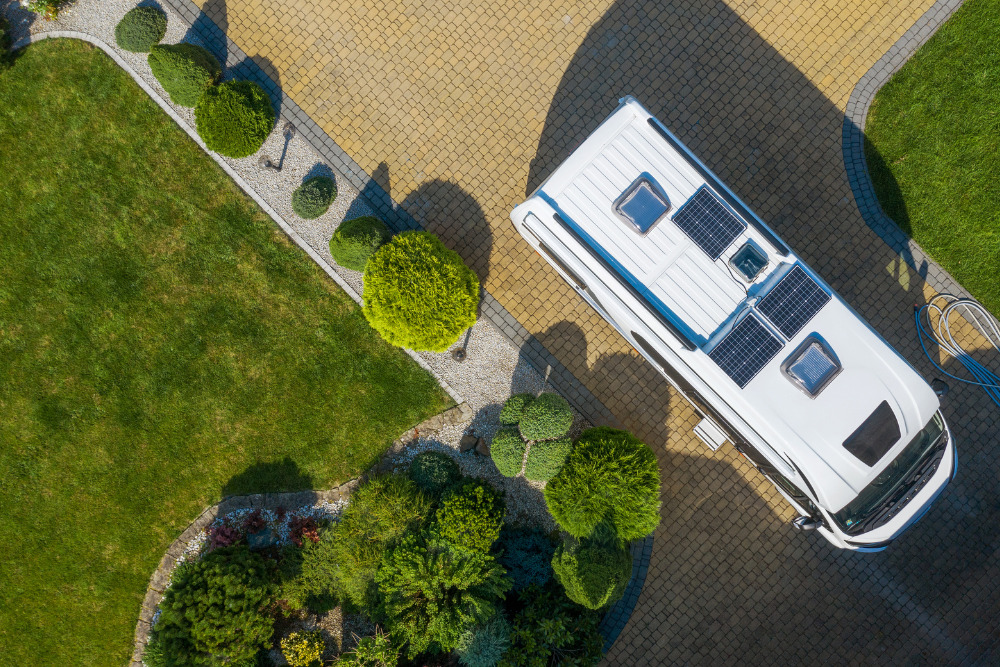
Embarking on an RV adventure (also called boondocking) is an exciting experience, but having a reliable power source on every leg of your journey is crucial. RV solar panels offer a sustainable and cost-effective solution for powering your recreational vehicle on the go.
RV solar panels can provide renewable energy for charging batteries and running onboard appliances while camping off-grid or in campgrounds. This source of natural energy allows you to enjoy the freedom of the open road without worrying about electrical hookups, battery charger power stations, or generator fuel.
Can Solar Panels Be Installed On An RV?
RV solar panel installation is a common, convenient, and sustainable way to power your mobile home. These panels can be mounted on the RV roof, taking advantage of the available space and maximizing sun exposure.
If roof mounting is not feasible or desired, solar panels can also be installed on a ground mount next to the RV, providing flexibility in positioning and orientation. The downside is that you will need to select a sunny camping spot and the panels will only produce energy when you’re stopped.
What Kind Of Equipment Does An RV Solar System Require?
At the heart of an RV solar system lies the lithium battery bank. These high-capacity batteries store the sun's energy efficiently and are favored over traditional lead-acid batteries. While they are not as lightweight and long-lasting as lithium batteries, AGM batteries are a popular choice for RVers seeking a more budget-friendly option without compromising performance.
When it comes to charging the batteries, an MPPT (Maximum Power Point Tracking) charger takes center stage. Unlike the older PWM (Pulse Width Modulation) technology, an MPPT charger can capture more energy from the solar panels, optimizing power conversion and increasing overall efficiency.
A battery monitor is a must-have tool to ensure you don’t run out of power. It provides information such as voltage, current, amp hours, and remaining capacity.
An inverter charger is essential to convert the DC power from your batteries into usable AC power. This device not only provides a seamless transition between solar and grid power but also allows you to charge your batteries while connected to shore power.
The Solar Panels
Now, let's talk about the solar panels themselves. High-quality panels, like those from Victron or Go Power, are designed to withstand the rigors of travel, with features such as tempered glass and sturdy frames.
You can determine the optimal number of panels to install based on your energy needs and available roof space. Properly securing the panels to the roof may involve drilling holes for the mounting equipment, but the result is a reliable and sturdy setup that can endure various weather conditions.
What’s The Difference Between A Solar Panel For An RV And One For A House?
RV solar panels and solar panels for houses differ in several ways.
RV solar panels:
Are smaller and lighter compared to solar panels used in residential applications. These portable solar panels allow easier RV installation and mobility.
Fit the limited roof space of an RV. They are much smaller than standard residential panels and come in various compact sizes to fit a wide range of RV sizes.
Are engineered to withstand the unique challenges of being on the road. They are built to endure vibrations, shocks, and movements associated with traveling.They withstand all weather conditions and temperature fluctuations, ensuring reliable performance even in harsh outdoor environments.
On the other hand, solar panels for houses are typically larger and heavier, as they have more space for installation. They are optimized for stationary use and are permanently mounted on rooftops or ground-based structures.
These panels are designed to meet the higher energy demands of a household and may incorporate additional features like advanced tracking systems to maximize sun exposure.
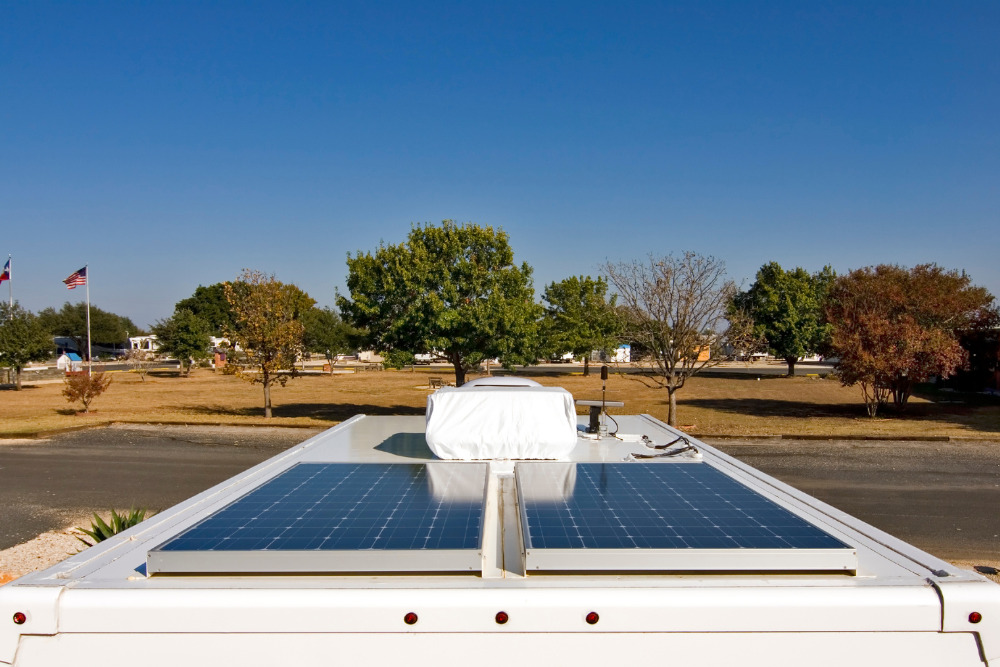
How Much Energy Do RV Solar Panels Produce?
The energy production of RV solar panels depends on factors such as panel size, sunlight exposure, and efficiency. On average, a monocrystalline RV solar panel can generate around 100 to 200 watts per hour (100 to 200 watt-hours), providing a reliable DC power source.
The amount of sunlight the panels receive significantly impacts their energy output, with direct and unobstructed sunlight optimal for maximum power generation.
How Many RV Solar Panels Are Needed To Run The Air Conditioner?
Running an air conditioner solely on solar power can be challenging due to its high energy consumption. It often requires a significant number of panels, typically around 1,000 watts or more, along with an efficient inverter and ample battery capacity.
To accurately determine the number of RV solar panels needed to power an air conditioner, it's essential to consider the power consumption of the AC unit, the solar panel wattage, and the available sunlight. As the power requirements vary among different air conditioner models and RV setups, it is advisable to consult the manufacturer's specifications or contact a professional solar installer to assess your needs.
However, as a general guideline, running an air conditioner requires a significant amount of power, often exceeding the capacity of a single RV solar panel. It is common for RV owners to use a combination of solar panels, batteries, and a generator or shore power to meet the energy demands of an air conditioner.
According to Boondocker’s Bible, you’ll need about 1,800 watts of solar energy to run your RV’s air conditioner for eight hours a day. Most campers don’t have this much solar power because it’s expensive and heavy to mount that many panels.
Here are a few other websites that provide helpful information about RV solar:
- Renogy is a popular brand in the portable solar industry and provides a range of solar products, including panels for RVs. Their website offers solar calculators and educational materials to help determine solar panel requirements for specific applications.
- rv.net is a community forum where travel trailer enthusiasts discuss various topics related to RVing, including solar power setups. Browsing through relevant threads or posting specific questions can provide insights from experienced RVers.
- The iRV2 forums cover many RV-related topics, and there are dedicated sections for solar power and air conditioning discussions. Engaging with the community can provide valuable insights and recommendations.
How Much Do RV Solar Panels Cost?
RV solar installation prices depend on the size, type, and brand of the equipment. On average, a 100-watt solar panel for an RV can cost around $200.
However, it's important to note that prices for solar panel kits can range significantly, with smaller ones being less expensive and larger, more efficient systems being more costly. Other cost factors include additional components such as mounting hardware, wiring, and charge controllers.
Research and compare prices from different manufacturers and suppliers to find the best value for your needs and budget. DIY kits are widely available on platforms like Amazon.
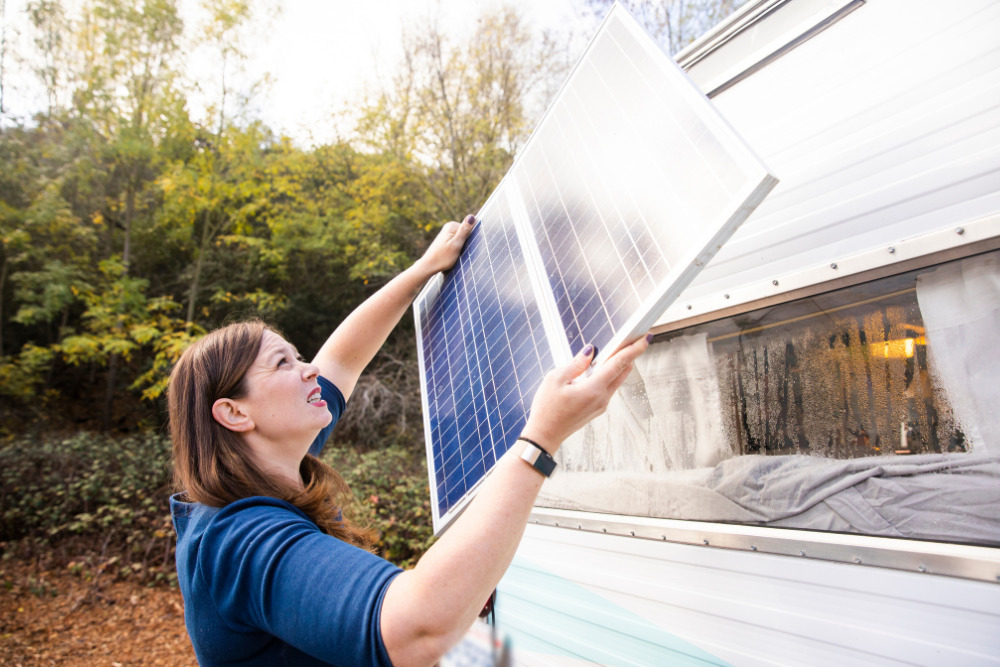
Can You Install Your Own RV Solar Panels?
Yes, you can install your own motorhome solar panels. However, it's important to follow instructions carefully, use proper mounting brackets, connectors, and sealant, and ensure the correct wiring and fuses are in place to maintain a safe and efficient solar setup.
Here are some additional tips for installing RV solar panels:
- Select a spot on your RV's roof or any other area that receives ample sunlight throughout the day. Avoid shading from trees, antennas, or other objects that can obstruct sunlight and reduce the panel's performance.
- Use appropriate mounting hardware to secure the solar panels to your RV. Ensure they are fastened tightly to withstand various weather conditions and vibrations while driving. Following the manufacturer's instructions for mounting is crucial to prevent any damage or loss during travel.
- Regularly inspect your solar panel system for any signs of damage or wear. Look for cracks, loose connections, or water ingress. It's important to address any issues promptly to maintain the optimal functioning of your solar system.
- Keep your solar panels clean to ensure maximum energy production. Dust, dirt, leaves, and bird droppings can accumulate on the surface, reducing efficiency. Clean the panels gently with a soft brush, sponge, or cloth using water or mild detergent. Avoid abrasive materials that could scratch the panel's surface.
- Install a solar charge controller and monitor to keep track of the power output and battery charging. These devices can help you optimize the system's performance, prevent overcharging or undercharging, and ensure efficient energy management.
- Follow all safety guidelines and use proper protective equipment. If you are uncertain or uncomfortable with any aspect of the RV solar system installation, consult a professional to ensure a safe and accurate setup.
